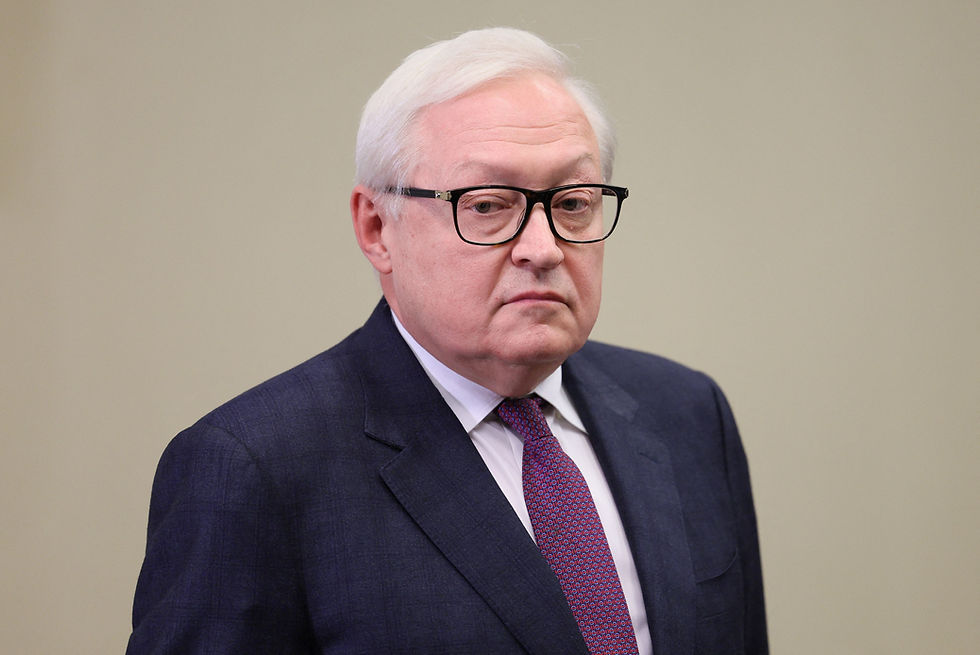Russia warns the United States against possible nuclear testing under Trump
- News Agency
- Dec 28, 2024
- 2 min read

MOSCOW - Russia's point man for arms control cautioned Donald Trump's incoming administration on Friday against resuming nuclear testing, saying Moscow would keep its own options open amid what he said was Washington's "extremely hostile" stance.
The resumption of testing by the world's two biggest nuclear powers would usher in a new and precarious era nearly 80 years since the United States tested the first nuclear bomb at Alamogordo, New Mexico in July 1945.
Russia, the United States and China are all undertaking major modernisations of their nuclear arsenals just as the arms control treaties of the Cold War era between the Soviet Union and the United States crumble.
In an explicit signal to Washington, Deputy Foreign Minister Sergei Ryabkov, who oversees arms control, said Trump had taken a radical position on the Comprehensive Nuclear Test Ban Treaty (CTBT) during his first term.
"The international situation is extremely difficult at the moment, the American policy in its various aspects is extremely hostile to us today," Ryabkov was quoted as saying in an interview with Russia's Kommersant newspaper.
"So the options for us to act in the interests of ensuring security and the potential measures and actions we have to do this - and to send politically appropriate signals... does not rule anything out."
During Trump's first 2017-2021 term as president, his administration discussed whether or not to conduct the first U.S. nuclear test since 1992, the Washington Post reported in 2020.
In 2023 President Vladimir Putin formally revoked Russia's ratification of the Comprehensive Nuclear Test Ban Treaty (CTBT), bringing his country into line with the United States.
The Comprehensive Nuclear Test Ban Treaty was signed by Russia in 1996 and ratified in 2000. The United States signed the treaty in 1996 but has not ratified it.
NUCLEAR TEST?
There are fears among some arms control experts that the United States is moving towards a return to testing as a way to develop new weapons and at the same time send a signal to rivals such as Russia and China.
Russia, with 5,580 warheads, and the United States, with 5,044, are by far the world's biggest nuclear powers, holding about 88% of the world's nuclear weapons, according to the Federation of American Scientists. China has about 500 warheads.
In the five decades between 1945 and the 1996 Comprehensive Nuclear Test Ban Treaty, over 2,000 nuclear tests were carried out, 1,032 of them by the United States and 715 of them by the Soviet Union, according to the United Nations.
Post-Soviet Russia has not carried out a nuclear test. The Soviet Union last tested in 1990.
Putin has said Russia would consider testing a nuclear weapon if the United States did. Last month Putin lowered the threshold for a nuclear strike in response to a broader range of conventional attacks, and after Moscow said Ukraine had struck deep inside Russia with U.S.-made ATACMS missiles.
Since the Soviet Union collapsed in 1991, only a few countries have tested nuclear weapons, according to the Arms Control Association: the United States last tested in 1992, China and France in 1996, India and Pakistan in 1998, and North Korea in 2017.
(Reporting by Guy FaulconbridgeEditing by Andrew Osborn and Gareth Jones)

.png)








Comments